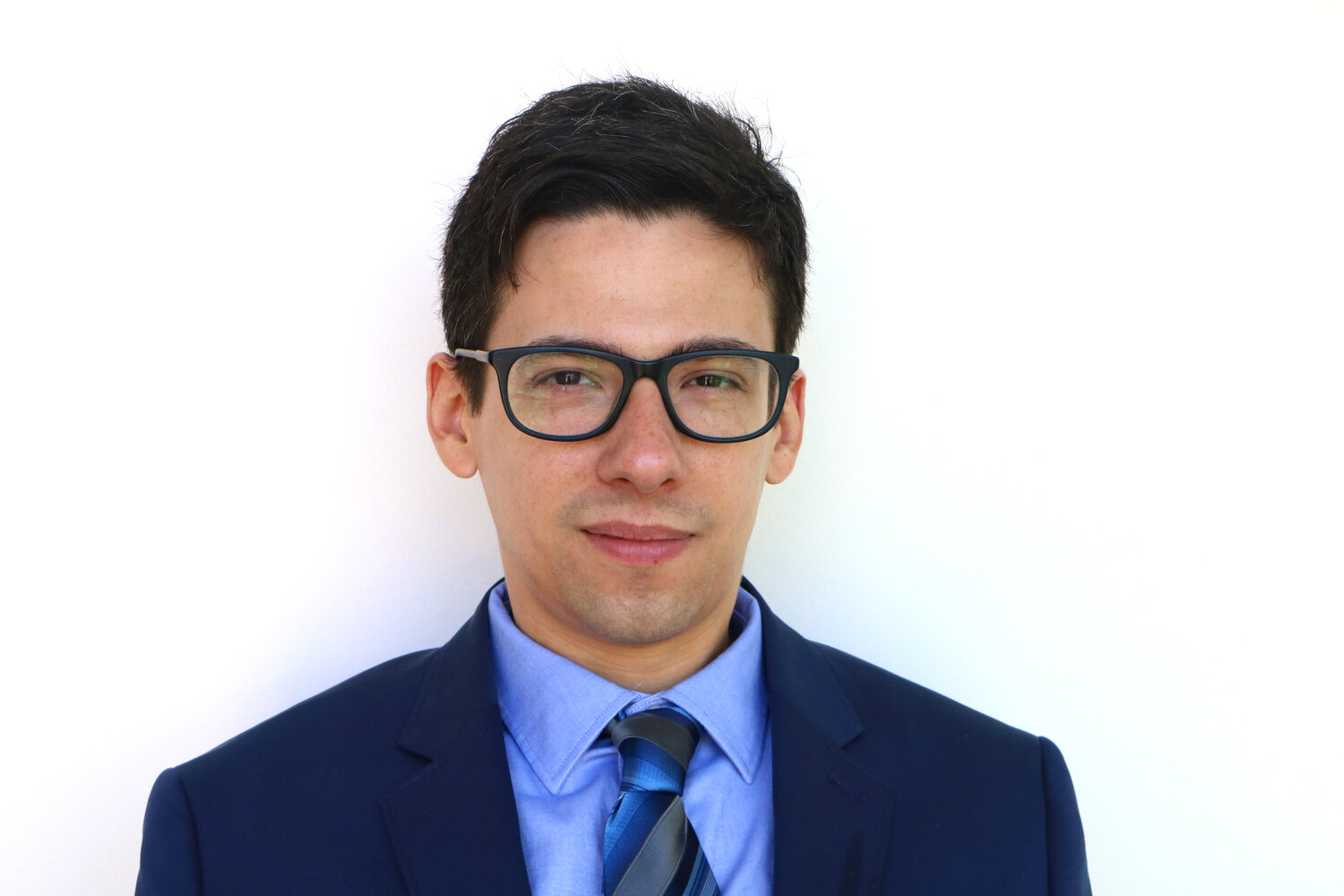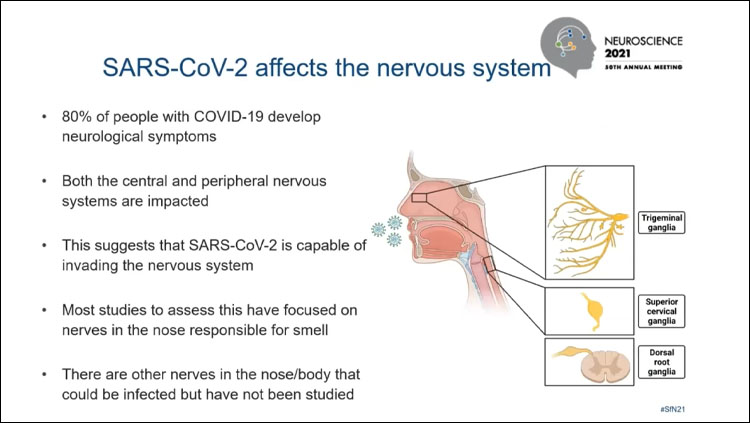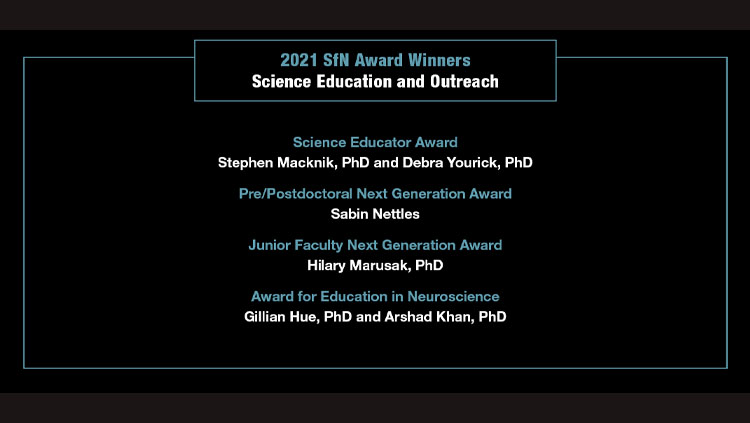Future of Neuroscience: Michael Wells

Michael Wells
“Future of Neuroscience” is a series of interviews with rising members of the field. A forward-looking complement to SfN’s “History of Neuroscience” autobiographies of distinguished researchers, interviewees reflect on their emerging careers and share thoughts on where they believe neuroscience is headed.
Michael F. Wells, PhD, is an assistant professor in the UCLA Department of Human Genetics. He earned a B.S. in Biological Sciences from the University of Notre Dame in 2008, and a PhD in Neurobiology from Duke University in 2015 under the guidance of Guoping Feng. In 2021, he completed his postdoctoral training in the laboratory of Kevin Eggan at Harvard University and the Broad Institute. Michael’s research aims to discover the disease mechanisms underlying neurodevelopmental disorders of genetic and viral origin using human stem cell-derived neural models and cerebral organoids. Outside of the laboratory, Michael serves as the creator and co-director of the COVID-19 National Scientist Volunteer Database and is the Chair of the Society for Neuroscience (SfN) Trainee Advisory Committee.
Neuroscience Quarterly (NQ): Why did you choose to pursue a career in neuroscience?
Michael Wells (MW): There was not much thought that went into it. I became interested in neuroscience after I got a bad grade on an organic chemistry test and realized I did not want to go to medical school. I went home for fall break and found a copy of National Geographic on my bed. It was an entire edition of the magazine devoted just to neuroscience. I skimmed it and thought, “Okay, I'll do this. I'll be a neuroscientist.” I added psychology alongside my biological sciences major. I did a couple summer neuroscience programs and then applied to graduate school. It sounds like it was just something I decided on a whim, but in the background there were a lot of things really driving me towards a career neuroscience. I was always interested in science and human behavior, especially diseases that cause abnormal behaviors. These things always interested me; I just didn't realize that I wanted to do them as a career until my sophomore year of college.
NQ: What's your area of research and what drew you to that specific section of the field?
I went home for fall break and found a copy of National Geographic on my bed.MW: I'm primarily a developmental neurobiologist, focusing on neurodevelopmental diseases like autism and intellectual disability. What really drove me towards this subfield was my fascination with how events that take place early in development can have dramatic effects decades later. I’m interested in how things that happen during fetal brain development can later spawn symptoms that we typically associate with neurodevelopmental disorders.
NQ: You were in the job market for a tenure track position in 2021. What was it like to enter a very competitive job market during a pandemic?
MW: I've described the job market in 2021 as entering the Thunderdome. There are twice as many people applying for half as many jobs, because a lot of people who were given offers last year had those offers rescinded if, for example, that school decided they could no longer hire anybody. And just because there's a lot of talented people doesn't mean there's an equal number of positions, so it was really challenging.
I think we would have had this problem regardless of the pandemic. In 2008 and 2009, when we had the economic recession, one of the responses was a doubling of the NIH budget for a year or so. What happened was there's this huge influx of funding, which means many departments were able to take on more graduate students. And I was part of that class, that surge of graduate students. So now all those people who started with me are now entering the job market around the same time, and there's just nowhere for many of us to go.
I've described the job market in 2021 as entering the Thunderdome.It was a very stressful situation, but I've learned lot about my work. I've learned a lot about myself. I learned a lot about our field in the way that we are trying to build a future in the neurosciences. But having said, that we need an improved system because the hiring process consumed all of my time for six months. And I’m a fortunate one, I accepted a position an assistant professor in the Department of Human Genetics at UCLA. Many people put the same amount of effort into the faculty hiring process and didn’t get offers. There's a lot of time and energy being wasted because we have a very inefficient system for hiring. And I think we need to, as a group, solve that problem.
NQ: What was your experience like as an Early Career Policy Ambassador?
MW: That was a phenomenal experience, having the opportunity to talk members of Congress and their staff and really make the case for funding research at the federal level. It's very empowering. Every scientist loves to complain about how grants don't get funded and how difficult it is to maintain a lab and get your ideas up and running. But very few take the step to advocate to the people who are making the decisions. As a result of the training I received through ECPA, I've also done my own outreach. I’ve made my own meetings with members of Congress outside of the parameters of SfN Hill Day and made the push for certain types of science to be funded.
One of my most memorable experiences at SfN Hill Day was our meeting with former Congressman John Lewis.One of my most memorable experiences at SfN Hill Day was our meeting with former Congressman John Lewis. We accidentally showed up to our meeting an hour early and he happened to be in his office. He invited us in and was very accommodating. We looked at him like, no, we should be doing this for you. When you look in his office, there many photos of civil rights leaders and very famous situations, like the March on Washington, and somewhere in the picture he was always there. This is one of most important Americans in history, and he was asking what he could do for us to make us more comfortable. That was probably not just one of the most memorable situations I experienced as a member of ECPA on Hill Day, but just in my life in general. Getting a chance to meet him was something I'll never forget.
NQ: Why is it important for scientists to engage with the general public?
MW: I really do think it's a matter of life and death that non-scientists buy into what we're doing. Many of us either directly or indirectly contribute to improving human health. It's very important that we don't do all this work and invest all this money, time, and effort into finding treatments that the general public either doesn't trust or doesn't believe in. The whole point of science is to improve humanity and human health. And in order to do that, we need to invite non-scientists into the process to make sure that they feel included. We might think this is not a neuroscience problem. But before the distrust in vaccines during the COVID-19 pandemic, we had the same issue with people not believing in scientists about climate change. It's only a matter of time before something happens in neuroscience, in which it's really important for the general public to believe what we're saying. They won’t believe us if we've been sitting in our silos for decades thinking that we don't actually need to talk to anybody about what we're doing. It's a ticking time bomb in my opinion, if we don't start doing a better job of outreach.
NQ: How do you hope the field of neuroscience will grow and change over the coming years? What do you think could make it better?
So, whether it be from my ethnic background or my socioeconomic background – I'm the first in my family to go to college – I really would like to be a point of reference and resource for other Hispanic and first generation college students...MW: This is nothing new, but we're not diverse enough at the faculty level. It's that simple. I'm often asked, “Well, what can we do to fix that?” It's not difficult: hire us. It is not hard to hire people when you realize you don't have enough representation of a certain demographic in your department, whether it be based on race or gender or ethnicity. Until we do that, I really don't think we're going to make much progress on this front. We can recruit as many graduate students and postdocs of color as possible into science. But if they look at the faculty in their department and they don't see themselves, then they're not going to feel like there is a place for them long-term. And they're going to go somewhere else. It's not like these individuals are not qualified enough for the jobs; it's that they are getting to certain levels but then not being considered beyond that point.
NQ: Where do you hope your own career will take you over the next few decades?
MW: I'm motivated by making an impact at multiple different levels of science. Ideally, I will be running a lab that is making discoveries that are important for understanding neurodevelopmental disorders. But I also want to be known as a good mentor, to people both in and outside of my lab. So, whether it be from my ethnic background or my socioeconomic background – I'm the first in my family to go to college – I really would like to be a point of reference and resource for other Hispanic and first generation college students, to show them that it is possible to rise through the ranks of academia. I also want to show others how to use their background to their advantage, have it be something that gives them strength and a unique viewpoint. I hope that I'm not just making discoveries, but also improving the careers of trainees that may be coming from similar challenging backgrounds as mine.



















